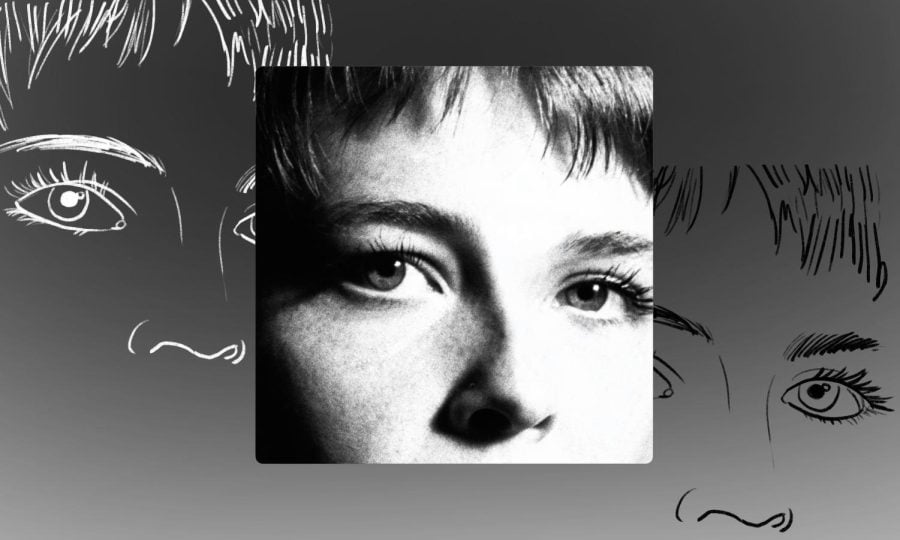Liner Notes: Maggie Rogers took me to church with “Surrender”
The record’s soundscape escalates until it explodes. Then, Rogers sifts through the rubble.
August 1, 2022
I first faced my queerness while singing worship music at church camp. The guitar seemed to belt threats of hell that day, and the drums induced claustrophobia. I worried the songs knew a secret I wasn’t ready to share at age 11.
A decade later, I listened through Maggie Rogers’ sophomore record “Surrender” while speeding down a highway in my hometown. Though it deals with secular themes, the album’s stadium grandeur and simple refrains stirred in me the same feelings of expansiveness and powerlessness that good worship music once evoked. I didn’t recoil this time.
The Grammy-nominated artist, who got her big break singing to former Wildcat Pharrell Williams, earned her master’s degree this spring from Harvard Divinity School. Her thesis, which shares a name with her July 29 album, interrogates “the spirituality of public gatherings and the ethics of power in pop culture.”
Rogers’ latest tracks, which are bolder and more communal than her 2019 album “Heard It in a Past Life,” value ecstatic collapse. They employ sanity as a bargaining chip and promise a no-holds-barred, spiritual devotion to romances, friendships and community.
“You tell me that forever couldn’t come too soon / If I’m gonna lose my mind, I’m gonna lose it with you,” she declares to a lover in crisis in “Anywhere With You.”
And with the album’s centerpiece track — the hard-charging, 80’s infused “Shatter” — she exclaims, “I don’t really care if it nearly kills me / I’d give you the world if you asked me to / I could break a glass just to watch it shatter / I’d do anything just to feel with you.”
Critics call some of her lines bulky and straightforward. I say her lyrics are honest — and like the worship songs I grew up singing, the strength of the album lies more in its atmosphere than its language.
Lead single “That’s Where I Am” and sensual anthem “Want Want” pair lofty synth with danceable percussion to revel in the fun of it all. Later on, “Symphony” and “Begging for Rain,” the album’s slower, stripped-back tracks, invite listeners to breathe.
The record’s soundscape escalates until it explodes — which we witness in “Shatter” — followed by a series of more solemn tracks in which Rogers sifts through the rubble. The bold-to-muted order of the album then inverts in the album’s crescendoing closer, “Different Kind of World,” suggesting that abandon prevails over restraint.
Rogers proclaims herself spiritual, not necessarily religious. Although the album packs bold sound, its rawness and reverence feel humble in the face of a higher power.
I view “Surrender” as converging my experiences with religion and sexuality — but importantly, Rogers doesn’t publicly identify as queer. I can point you to artists who are marginalized by the church and tackle Christian musical themes head-on.
Christian contemporary music draws in part from Black gospel tradition. As Mary Retta pens for Them, Black queer artists such as Lil Nas X and serpentwithfeet have long subverted gospel music to produce tracks that call out religious homophobia and build queer futures. And some queer artists even embrace the contemporary Christian music genre: Grace Baldridge, under the stage name Semler, made waves with their viral church-challenging EP “Preacher’s Kid” last year.
I’m not sure where my sexuality and faith reconcile these days. But I am grateful for albums like “Surrender,” which help me process my coming-of-age through a musical vocabulary that I know intimately.
Email: maiaspoto2023@u.northwestern.edu
Twitter: @maia_spoto
Related Stories:
— Podculture: ‘I can be happy and trans’: Queer students find joy in music
— Reel Thoughts: ‘Heartstopper’ captures the importance of found families within the queer experience
— Musician of the Week: Singer-songwriter Ava Earl learns to smell the roses with her latest album



